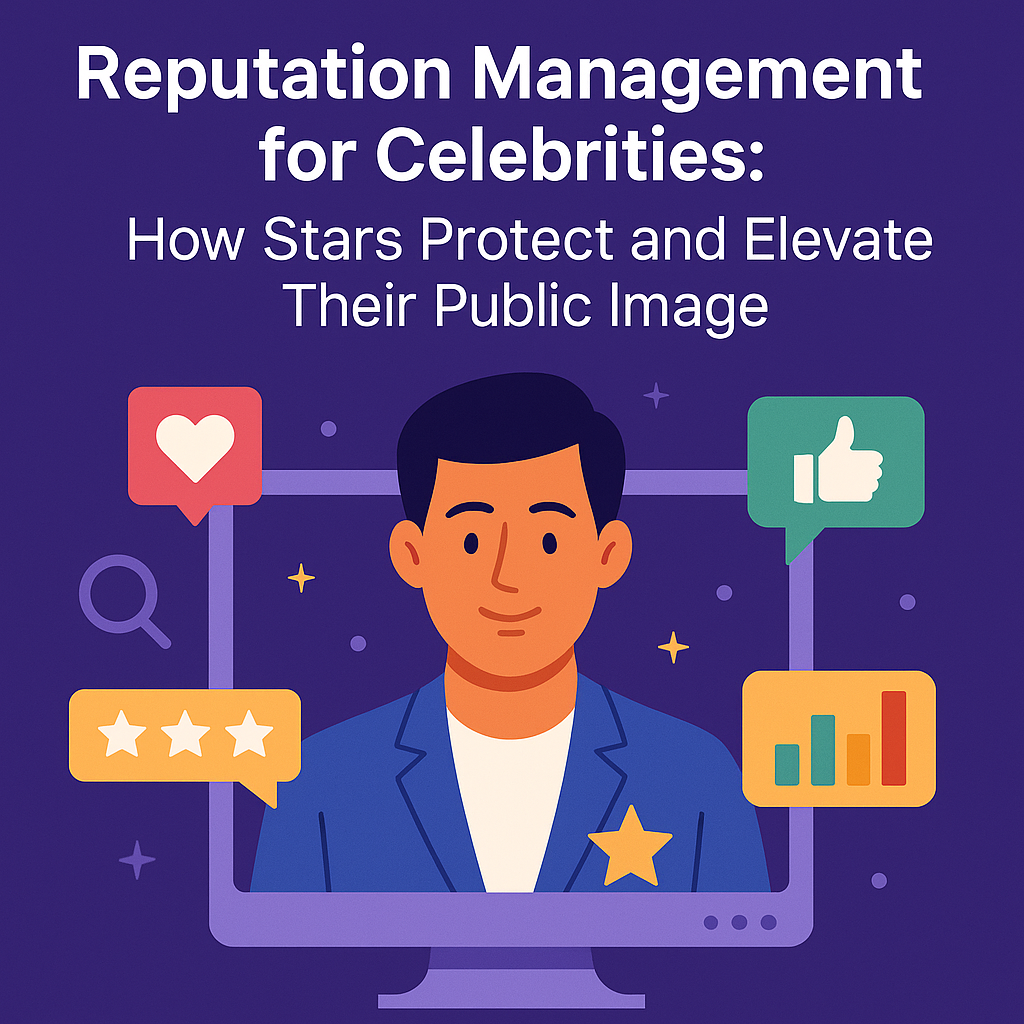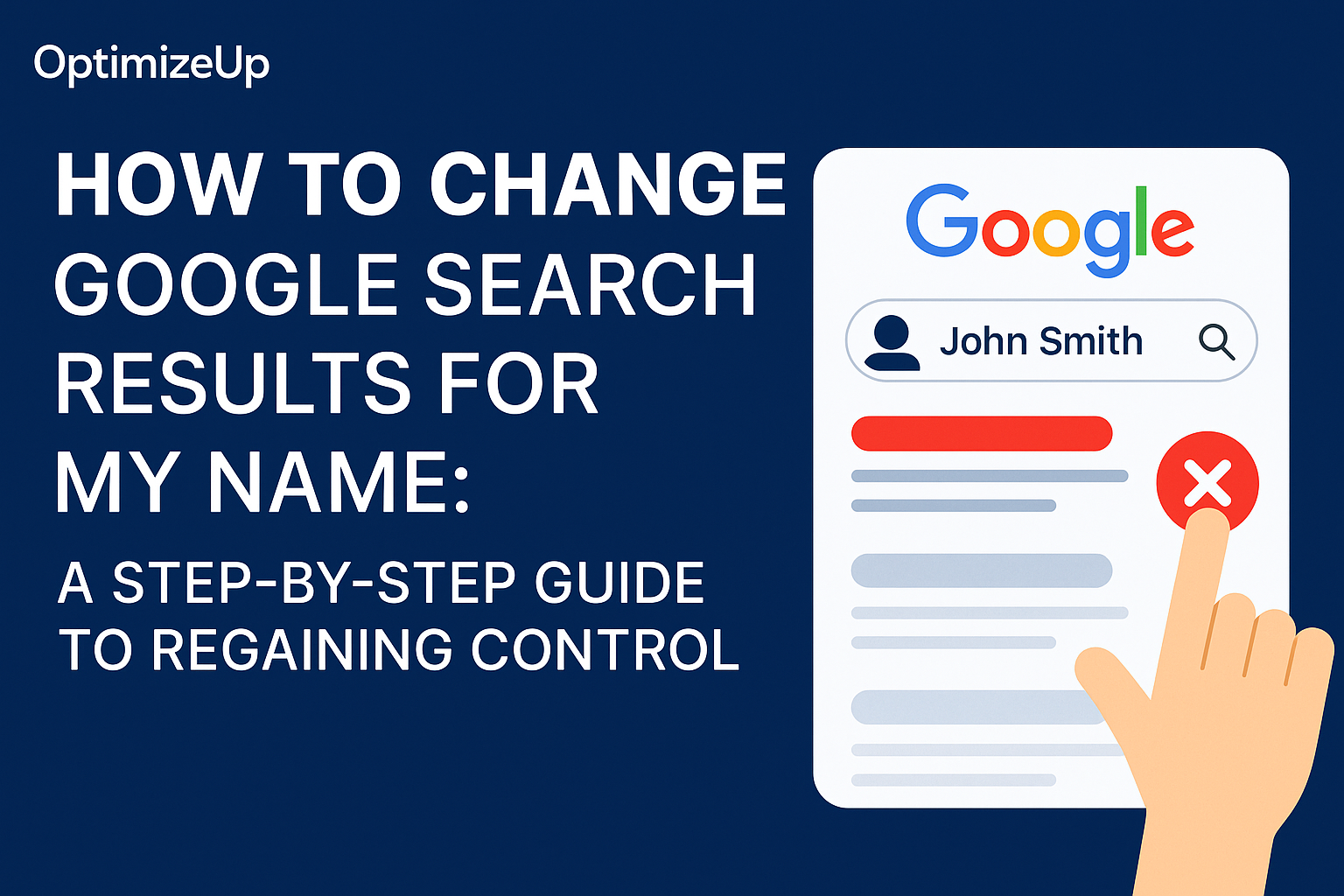Why Reputation Management Is Essential for Attorneys
Attorneys operate in one of the most trust-dependent professions. Clients choose their legal representation based not only on credentials and case history but also on what appears when they search your name. Whether it’s Avvo, Google, Yelp, or a blog post, your online presence creates an immediate perception—positive or negative.
In fact, a Martindale-Avvo study shows that over 90% of consumers consider online reviews when choosing legal counsel. That means a single bad review or misleading article can damage your reputation and lead to lost clients.
1. Monitor Your Online Footprint
Start with a reputation audit. Search for your:
- Full name + “attorney”
- Law firm name
- Practice areas
- Past and current case references
Use monitoring tools such as:
- Google Alerts
- Mention
- ReviewTrackers
- Avvo, Justia, and Lawyers.com Alerts
Look across platforms like:
- Google Business Profile
- Avvo
- Yelp
- Facebook and LinkedIn
- Ripoff Report and complaint forums
Organize results into:
- Positive mentions
- Neutral profiles needing optimization
- Negative content or reviews
2. Secure and Optimize All Legal Listings
Lawyers must take control of how they appear on legal and local search directories:
- Avvo
- Justia
- FindLaw
- Super Lawyers
- Martindale
- Yelp
- Google Business Profile
Ensure these profiles:
- Have consistent NAP (Name, Address, Phone)
- Highlight awards, credentials, and bar association status
- Include high-quality professional headshots
- Feature links to client testimonials and your website
Make use of schema markup to improve search engine understanding of your firm’s practice areas and specialties.
Understanding the Cost of a Poor Online Reputation
- Referral Loss: Potential clients may drop off after reading a single negative review.
- Bar Association Risks: Ethical complaints online can lead to unwanted scrutiny.
- SEO Suppression: Unfavorable content can outrank your website if left unaddressed.
- Peer Perception: Your reputation can affect courtroom credibility and professional networks.
According to BrightLocal, 60% of consumers won’t use a business with negative reviews that haven’t been responded to.
3. Proactively Generate Reviews
Lawyers often hesitate to request reviews due to privacy or ethics concerns. But there are ethical ways to ask for feedback:
- Request reviews after the case is closed (non-sensitive matters)
- Ask via follow-up emails or mailed thank-you cards
- Use QR codes on business cards or client intake packets
- Create a review page on your website with easy links
Be clear that reviews are optional and voluntary.
Platforms That Matter:
- Google (high local SEO value)
- Avvo (industry authority)
- Yelp (public visibility)
- Facebook (social proof)
- Lawyers.com (peer trust)
How to Handle Negative Reviews and Attacks
Not all criticism is fair. Some reviews are exaggerated, misrepresentative, or defamatory. Here are your response options:
Review Response Template (Calm and Ethical):
Dear [Reviewer], thank you for sharing your perspective. While we cannot go into case specifics due to confidentiality, we take feedback seriously. If you would like to discuss this further, please contact us at [email/phone].Avoid:
- Disclosing client information
- Getting defensive
- Publicly denying their version of events
Addressing False Allegations
When content crosses into defamation:
- Flag it for removal on the review site
- Respond calmly and factually (if permitted)
- Document everything
- Seek help from online reputation management specialists to evaluate takedown and suppression options
Legal-Specific ORM Content Strategy
Attorneys need content that reinforces their expertise while pushing down negative links. Consider:
- Blogging on common legal FAQs (e.g., “What to do after a DUI in Texas”)
- Publishing case studies and anonymized testimonials
- Posting videos on legal topics to YouTube and embedding them on your site
- Writing for local or bar association newsletters
- Getting quoted on news or legal commentary sites
This content builds authority and helps push down harmful or outdated results.
Practice Area SEO
Ensure every service page (e.g., “Family Law Attorney in Denver”) is:
- Optimized for keywords
- Contains internal links
- Features genuine client reviews
- Uses clean URL structures and meta tags
Include attorney bios that rank for your name + “lawyer” in local search.
Advanced Reputation Tactics for Law Firms
Law Firm-Wide ORM Guidelines
Create firm policies for:
- Who responds to reviews
- How quickly to respond
- When to escalate to legal removal
- Social media use and review screenshots
Use a shared dashboard like Birdeye or Podium to centralize feedback from multiple platforms.
Social Listening
Track client discussions, case mentions, and legal topics via:
- Reddit (legal subs)
- Twitter (law hashtags)
- Google Trends for regional issues
This helps you proactively address public perception.
Integrate With CRM Systems
Automate review requests and follow-ups with tools like:
- Clio Grow
- Lawmatics
- Mailchimp integrations
Automating helps improve review volume without manual reminders.
What to Do When You’ve Been Defamed
If someone posts:
- False allegations
- Revenge posts
- Misleading legal claims
- Personal attacks
…you have options.
OptimizeUp Can Assist With:
- Identifying the source and IP of anonymous posts
- Filing takedown notices to Google and hosting platforms
- Publishing counter-content to suppress defamation
- Engaging legal counsel if litigation is warranted
Schedule a free consultation with OptimizeUp to assess your internet reputation risks.
Frequently Asked Questions (FAQ)
Ask after the case ends, and never offer incentives. Direct clients to platforms like Google or Avvo with optional links.
Yes, if the content is provably false and causes reputational harm. Always consult with an attorney before pursuing legal action.
Report the review, respond publicly without specifics, and contact platforms for removal. Services like OptimizeUp specialize in handling such cases.
Google, Avvo, Yelp, Lawyers.com, and Martindale are most influential in legal reputation.
Depending on the severity, recovery may take 1-6 months. It depends on content age, domain authority, and SEO strategy.
Works Cited
BrightLocal. “Local Consumer Review Survey 2024.” BrightLocal, https://www.brightlocal.com/research/local-consumer-review-survey/.
Martindale-Avvo. “What Consumers Want When Hiring Lawyers.” Martindale-Avvo, https://www.martindale-avvo.com/blog/survey-results-what-consumers-want-when-they-hire-lawyers/.
Moz. “The Beginner’s Guide to SEO.” Moz, https://moz.com/beginners-guide-to-seo.
ABA Journal. “How Lawyers Can Ethically Respond to Online Reviews.” https://www.abajournal.com/news/article/lawyers-responding-to-online-reviews





